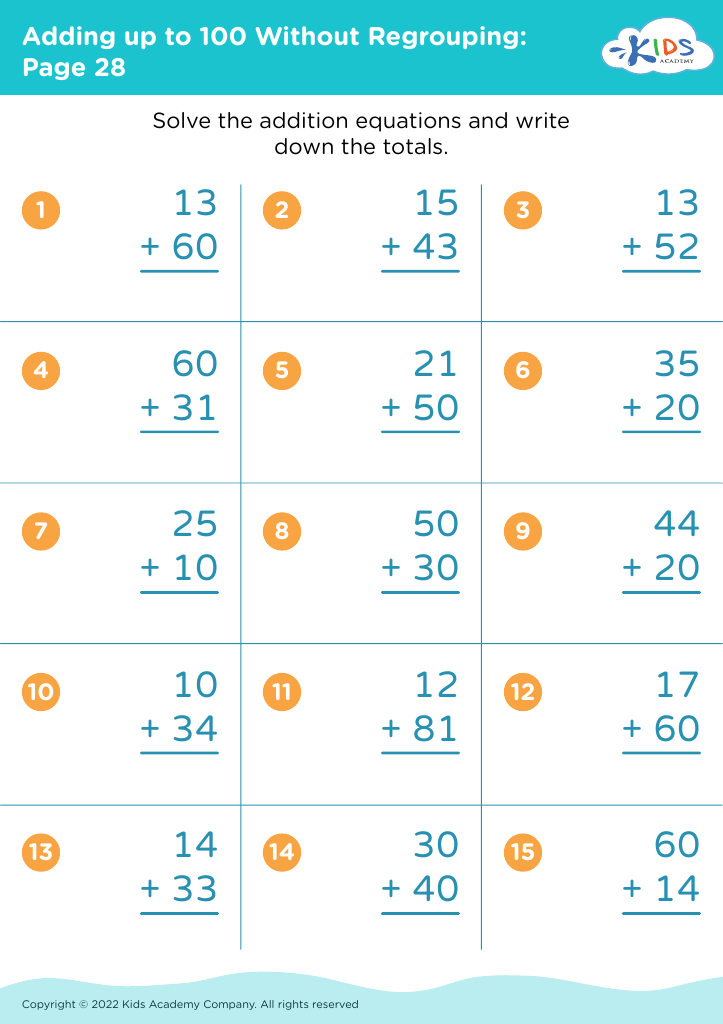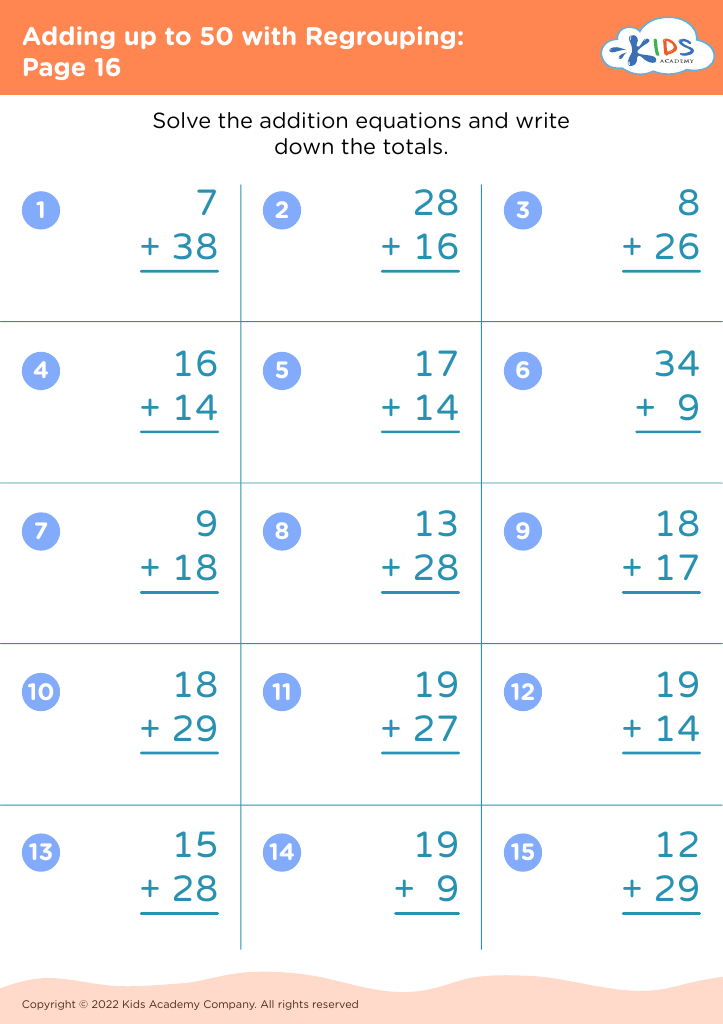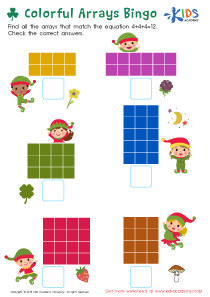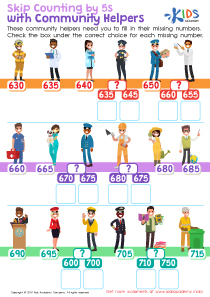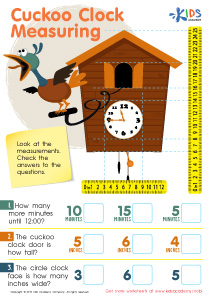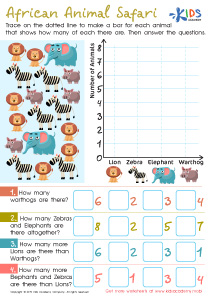Critical thinking development Grade 2 Addition & Subtraction Worksheets
3 filtered results
-
From - To
Unlock your 2nd grader's potential with our Critical Thinking Development Addition & Subtraction Worksheets. Specifically designed for young learners, these engaging and challenging activities seamlessly enhance math skills while promoting critical thinking. Students will tackle diverse problems, honing both their addition and subtraction abilities. As they work through each worksheet, they'll develop essential problem-solving strategies, logical reasoning, and analytical skills. Our worksheets make learning fun with colorful visuals and interactive tasks that keep children motivated and excited about math. Give your child the tools they need to succeed in mathematics and beyond with our expertly crafted resources.
Critical thinking is a crucial skill that empowers children to analyze situations, solve problems, and make informed decisions. For second graders learning addition and subtraction, developing critical thinking lays a solid foundation for future academic success and life skills. Parents and teachers should prioritize this development for several reasons.
Firstly, promoting critical thinking in the context of addition and subtraction helps children understand the "why" behind mathematical procedures, rather than just rote memorization. This deeper comprehension fosters a more meaningful engagement with math, making it easier for children to tackle more complex concepts later on.
Secondly, children equipped with critical thinking skills can better approach problem-solving tasks. For example, when faced with a word problem, they can break down the question, identify relevant information, and apply logical steps to find a solution. This skill extends beyond mathematics, enhancing their ability to navigate challenges in various subjects and real-life situations.
Thirdly, honing critical thinking during early math education improves cognitive abilities such as reasoning, memory, and attention. When children practice analyzing, questioning, and reflecting, they develop a mindset that values curiosity and open-mindedness, essential traits for lifelong learning.
By encouraging critical thinking in grade 2 math, parents and teachers help students build a robust intellectual toolkit, fostering an adaptable and resilient approach to both academic and personal growth.

